Lose a Pound a Day Diet
Wondering if it's possible to lose weight in a week? The best way to lose weight sustainably is to do it slowly and gradually. But it is possible to start shedding pounds in the next seven days safely if you follow our simple step-by-step guide.
"The best way to lose weight is over a sustainable period of time," says nutritionist Jenna Hope. "There are so many quick fixes out there, which promise you a certain amount of weight loss within a short period of time. However, often the faster you lose weight the more likely you are to put it back on."
If you're looking at how to lose a stone in a month or you want to start shifting weight today, the same rules apply. You need to expend more calories than you put in. Weight loss is a combination of eating a healthy diet, full of nutritious unprocessed foods, plus regular exercise—whether that's hitting the trail in your best walking shoes or rolling out your mat and trying a yoga for beginners course on YouTube.
To help kickstart your weight loss journey, Hope has shared her advice and tips on how to safely lose the pounds and keep them off. Plus, she's revealed her ultimate meal guide to show you the tasty healthy dishes you can serve up this week.
If you have any health concerns, you should speak to your doctor before embarking on a new fitness or nutrition plan.
LOSE WEIGHT IN 7 DAYS: OUR STEP-BY-STEP GUIDE
Here are Hope's top tips for losing weight healthy and sustainably, plus she reveals the best foods for weight loss so you know what to add to your shopping trolley.
1. AVOID RESTRICTED DIETS
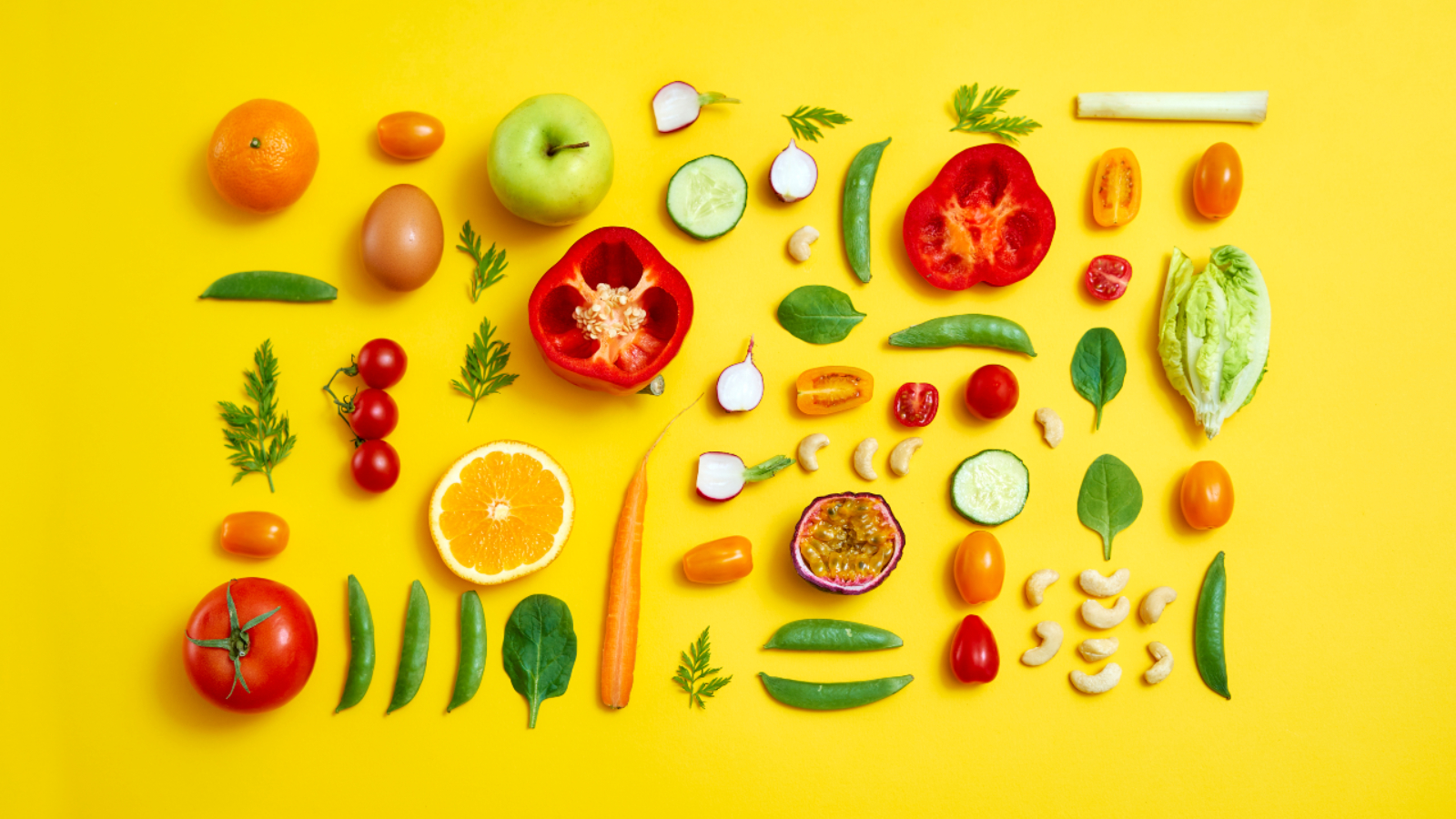
(Image credit: Getty images / Andriy Onufriyenko)
Embarking on a restricted diet might seem like the best route to lose weight fast, but it could have a detrimental effect on your health, as well as your long-term weight loss goals.
"Restrictive diets often come with extensive promises, so it can be tempting to jump into one," says Hope. "However these diets are not only unsustainable—and therefore may have an adverse effect on your weight in the long term—but they also pose a risk to your mental wellbeing."
Initially, you may see the numbers dip on your weighing scales, but restricted diets can make you feel sluggish, moody, nauseous and run down. This may be down to the fact that you're probably cutting out major food groups and missing out on vital nutrients. This will not only take a toll on your health but will likely set you up for rebound weight gain.
"Restricting specific foods or food groups can often leave you wanting them more," says Hope. This may increase cravings, which will have your willpower working overtime to avoid piling on the pounds. What's more, if a diet is too restrictive, you're less likely to stick to it and you're more likely to fail.
2. FOCUS ON WHAT YOU CAN ADD TO YOUR DIET
Don't focus on the foods you're cutting out—forget the doughnuts, biscuits, and crisps. Instead, think about all the delicious healthy foods you'll be adding in.
"Incorporating more nutrient-dense foods into your diet can help to naturally displace some of the more "unhealthy" foods that are high in sugars and unhealthy fats," says Hope. She recommends adding one extra portion of vegetables to each meal. "Vegetables are rich in fiber and water, which will help you feel fuller for longer." Aim for leafy greens, which are packed with magnesium and iron to help support your energy levels.
Hope also recommends loading up on beans, which are high in soluble fiber. This can help fight inflammation that causes belly fat, meaning they're a key ingredient to help you lose weight in a week. "Try incorporating beans into bolognese and stews to bulk them out and add them to soups and curries to ramp up protein and fiber, too."
3. SNACKS: SWITCH HIGH SUGAR FOR HIGH PROTEIN
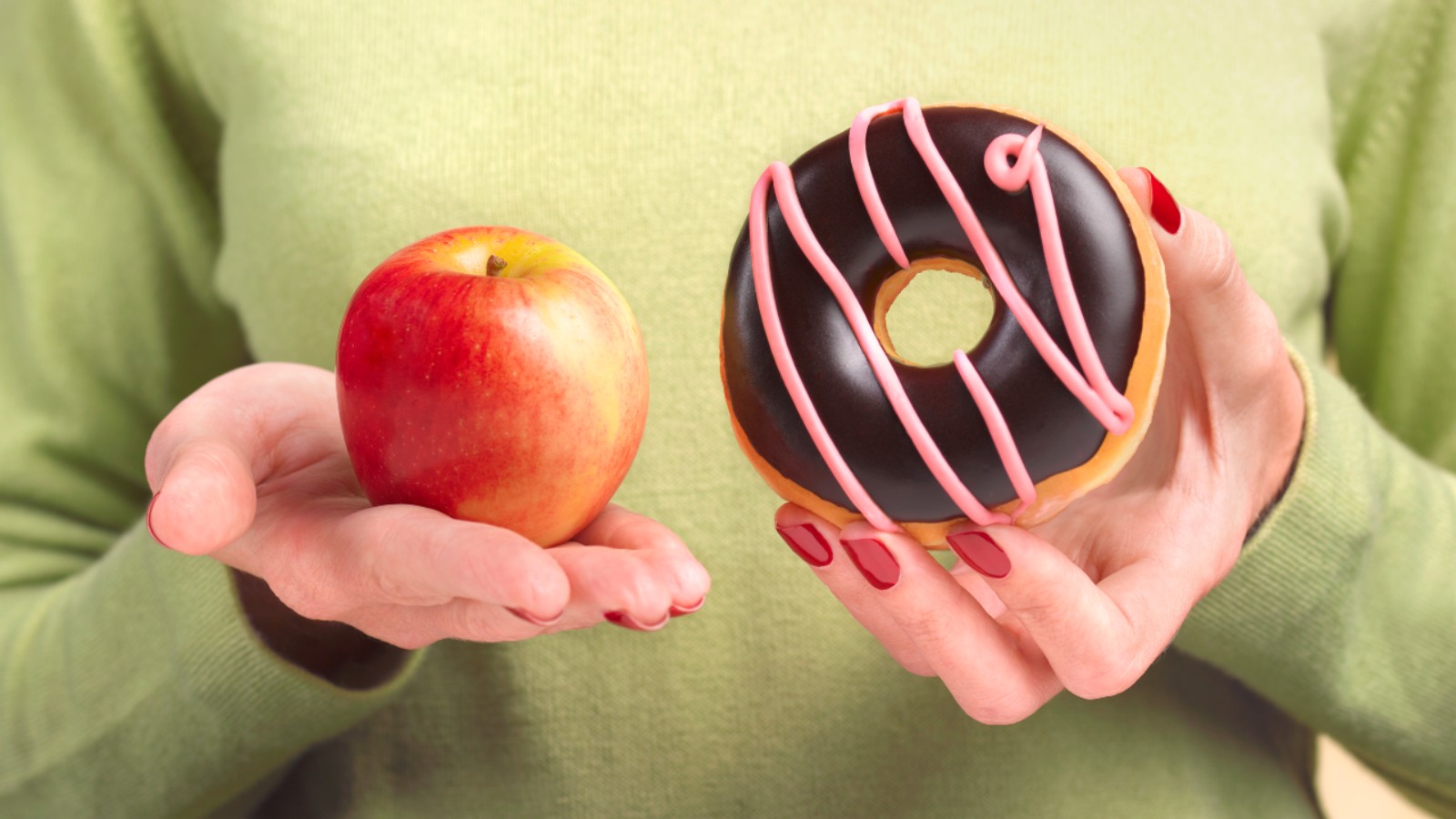
(Image credit: Getty Images / Peter Dazeley)
Snacking often gets a bad rap. So when it comes to losing weight in a week, you'd be forgiven for thinking they were off the menu. While unhealthy snacks can be the downfall of anyone trying to lose weight, healthy options can be a crucial part of any weight loss eating plan.
"Snacks can be a useful tool to manage blood sugar levels and prevent you overeating or craving high sugar foods later on in the day," says Hope. However, which snacks you choose can be key to whether you shift weight or not. "High sugar snacks will spike blood sugar levels and cause a consequent crash," says Hope. "When blood sugar levels fall you're more likely to crave sugar."
Switching to high-protein snacks could help. "They will increase satiety and stabilize blood sugar levels," says Hope. High protein snacks include:
- Cottage cheese on oatcakes
- Natural yogurt and cinnamon
- Carrots and cucumber sticks with reduced fat humous
- Boiled eggs
- Apple with 1tsp of peanut butter
- Roasted chickpeas
- Edamame beans
4. STAY HYDRATED
Believe it or not, being dehydrated can be one of the main causes of weight gain. Ensuring you drink enough water during the day could be key to losing weight and keeping it off.
"When individuals are dehydrated, it's common to mistake thirst for hunger, which can lead to overeating," explains Hope. Drinking a glass of water can fill up your stomach, leading to a sense of fullness. Your stomach will then send signals to your brain to tell it to stop eating.
Staying hydrated can also help everything run smoothly in your body. Water helps your kidneys to filter toxins and waste, so they can retain essential nutrients and electrolytes.
A lack of water can also lead to hard or lumpy stools and stop food from moving through your body. This may make you feel bloated and swollen, which can add inches to your waist. Hope recommends drinking around two liters of water every day to help your digestive system run efficiently and help you maintain a flat tum. "Just be aware that overconsumption of water can disrupt fluid balance and in extreme cases be dangerous," warns Hope.
5. SWITCH REGULAR BREAD TO SOURDOUGH
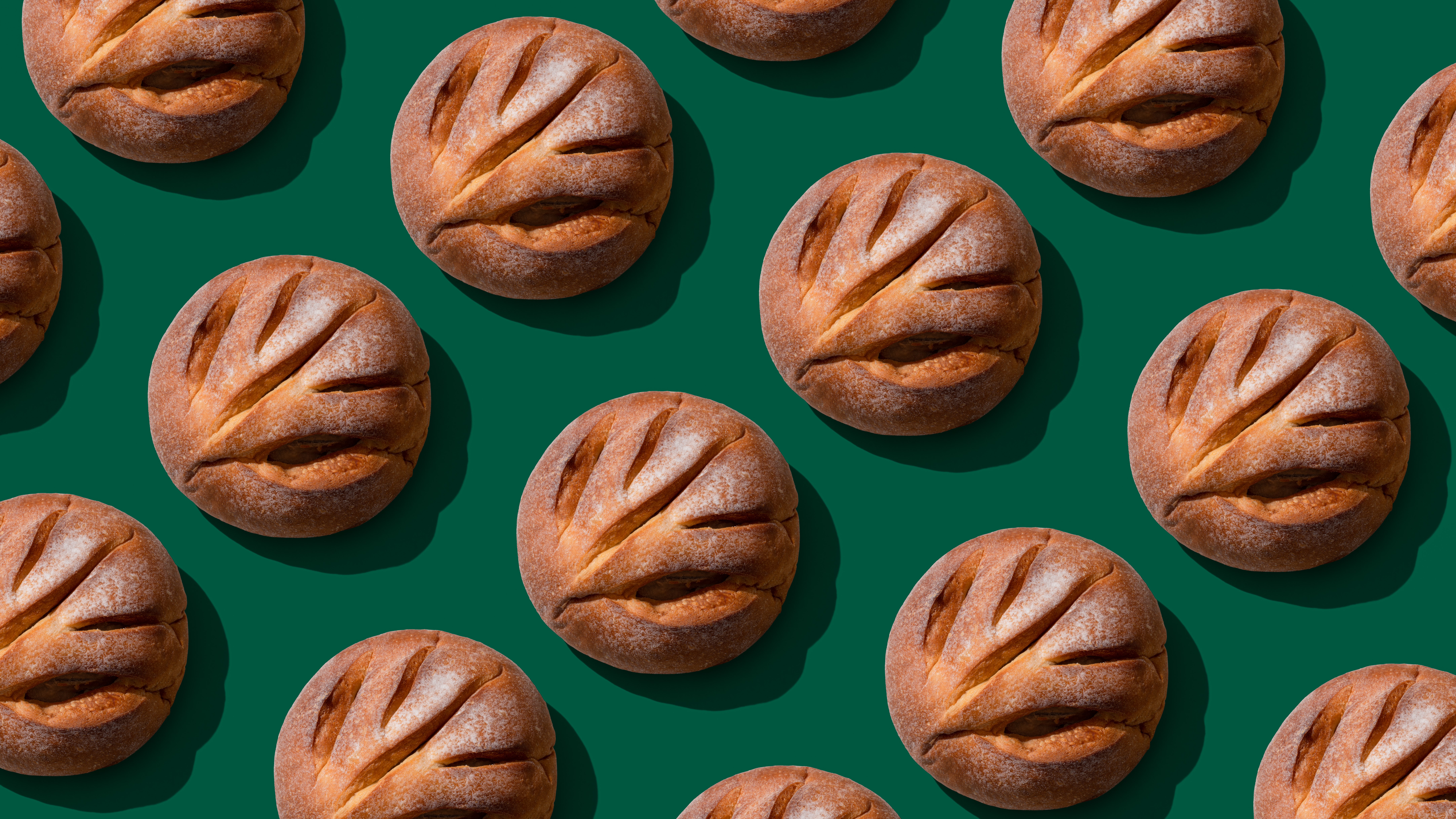
(Image credit: Getty Images)
If you want to lose weight, don't worry you don't have to give up bread. Yes, you heard that right! It's all about eating the right kind so you don't suffer from bread bloat.
"Sourdough bread undergoes a fermentation process, which helps break down the gluten proteins, and as a result, can leave you feeling less bloated than regular bread," explains Hope. Sourdough is also a good source of fiber, which may prevent you from reaching for a snack a couple of hours later.
Try Bertinet Bakery Seeded Sourdough. It contains 4g protein and 8.3g of fiber per 100g (anything containing over 6g fiber per 100g is considered high fiber), making it a great way to start the day.
6. EAT MORE MINDFULLY
Mindful eating is the idea that when we eat we are fully engaged in the eating process. "It [also] means we're eating in response to our body's physiological cues," says Hope.
Most of us are always trying to make the most out of every hour. This means many of us are guilty of eating while writing up our shopping list, or catching up with our favorite TV show, which could prevent us from losing weight. "Eating while distracted can impair digestion and the secretion of satiety hormones," says Hope. This means it can take longer for you to process that you're full, which can lead to overeating.
"Avoid engaging in other activities while eating and focus solely on the food on your plate," says Hope. Try eating more slowly and not rushing meals, chew thoroughly and focus on how the food makes you feel. Listening to your body while you eat will help you acknowledge when you are full, and even train you to eat less and have better portion control.
7. BE AWARE OF EXTRAS
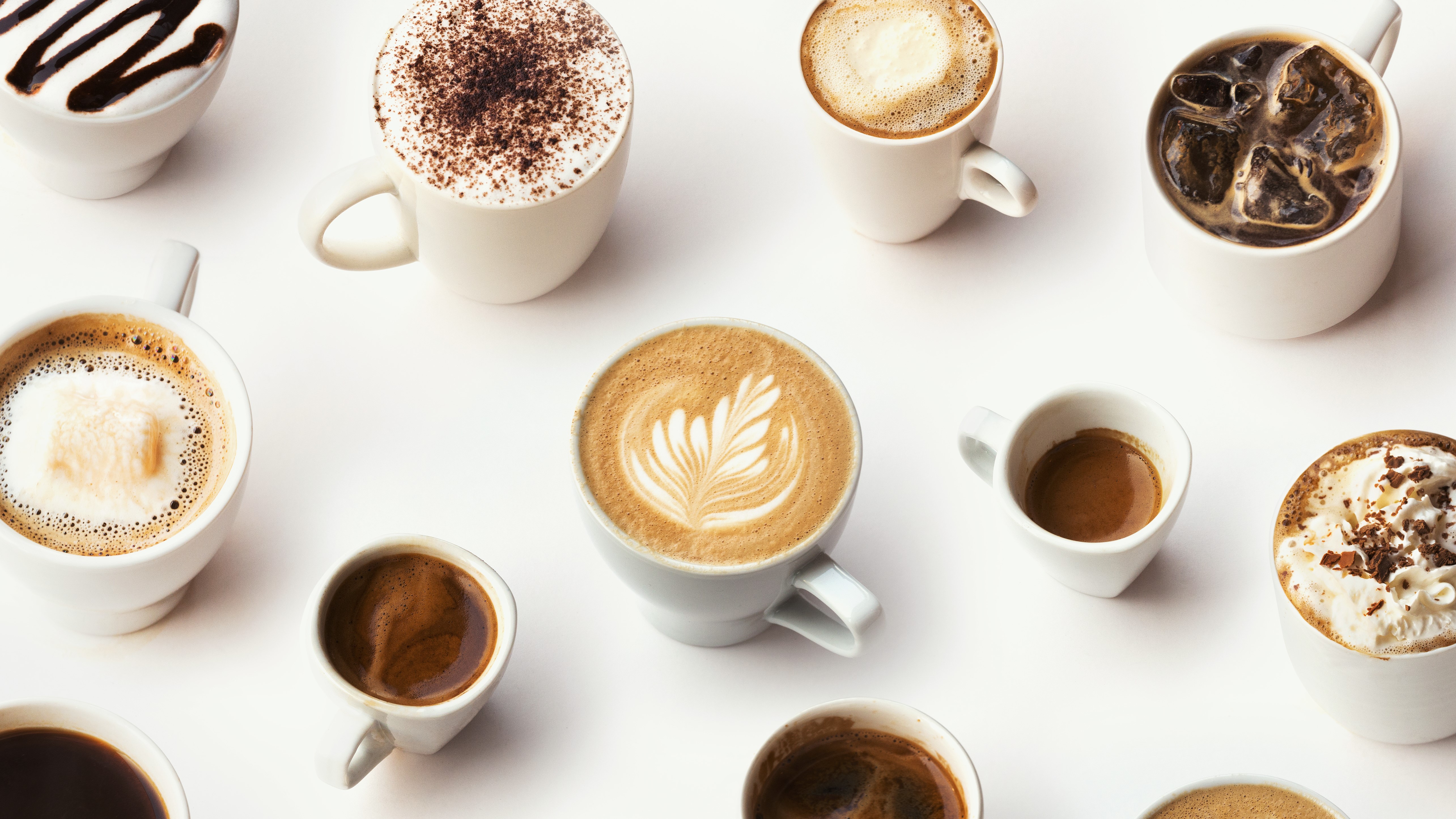
(Image credit: Getty Images)
If you've been eating healthy balanced meals, but you're still struggling to lose weight, there may be a tiny reason why. "When it comes to weight loss, focusing on the small things can have a big impact," says Hope. So while you're eating a "healthy" chicken salad, packed with lean protein and your five-a-day, your dressing choice could be undoing all the hard work.
"Added sauces, dressings, sugar (in tea and coffee), and high calorie drinks can really add up," explains Hope. She recommends opting for vinegar over sugary bottled dressings and sauces, limiting the sugar in your tea and coffee (better still cutting it out altogether!), and switching high calorie, sugary drinks for water instead. "These small changes will make a big difference over time!" says Hope.
8. GET MOVING
We've said it before, but we'll say it again—moving is key to weight loss. And it will definitely help you lose weight in a week. Burn off more calories than you consume and the pounds will start dropping off. "The combination of activity and consuming a healthy balanced diet is the best way to support healthy, sustainable weight loss," says Hope.
But don't worry, getting active doesn't mean sweating it out in the gym. "It's about finding an activity that works for you," says Hope. Whether that's running around with the kids, walking with a friend or simply trying the best exercises to lose belly fat at home, you just need to get that heart pumping and those lungs working.
Aim for 30 minutes every other day. Or if that seems unachievable, start with just 10 minutes and build up to half an hour. Doing something manageable that fits into your schedule means you're more likely to stick to it.
THE SEVEN DAY DIET MEAL PLAN
Eating a healthy diet is important in your weight loss journey. Planning out your meals can ensure each one is nutritionally balanced and prevent you from picking up a last-minute ready meal on your way home.
"This meal plan should be used as a guide," explains Hope. "It's important to mix up your diet on a regular basis and incorporate a wide variety of foods week on week." Additionally, if you have specific personalised requirements, please seek advice from your GP.
What to eat for breakfast
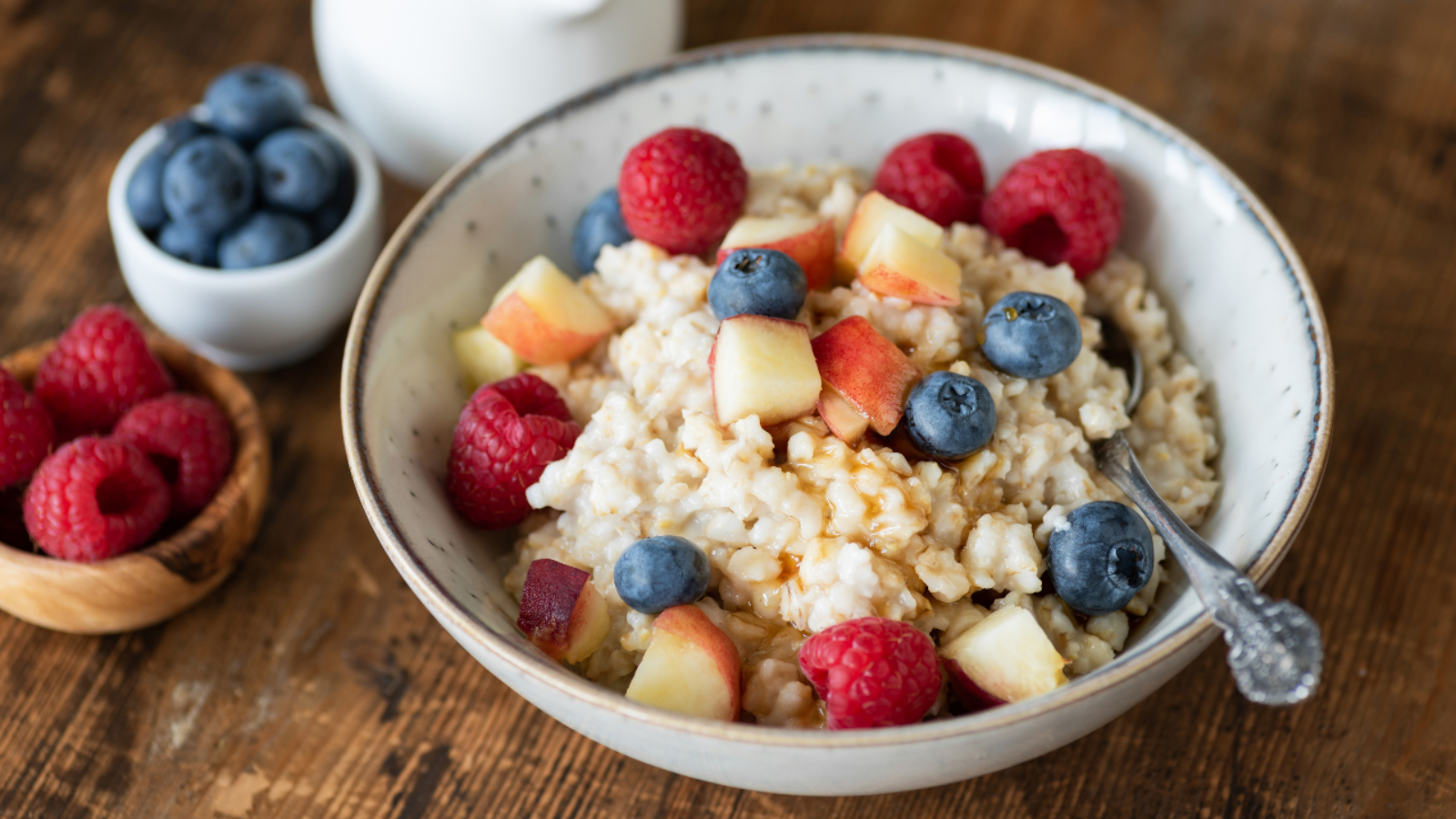
(Image credit: Getty Images / Arx0nt)
Eating breakfast could help you lose weight. When you eat first thing, you activate the thermogenesis process (heat production) and as a result stimulate your metabolism. However, what you eat for your morning meal may dictate whether you lose weight or pile it on. Hope recommends protein and fibre rich breakfasts that keep your blood sugar levels stable and stop you hankering after a high-sugar snack at 10am. Try...
- Porridge with cinnamon and berries
- Green smoothie with banana, Greek yogurt, spinach, oats and cinnamon
- Seeded sourdough toast topped with two scrambled eggs, spinach and mushrooms
- Scrambled tofu with onions and peppers
- Greek yogurt with muesli and berries
- Spinach, mushroom and tomato omelette
- Baked eggs with aubergine, peppers and spinach
What to eat for lunch
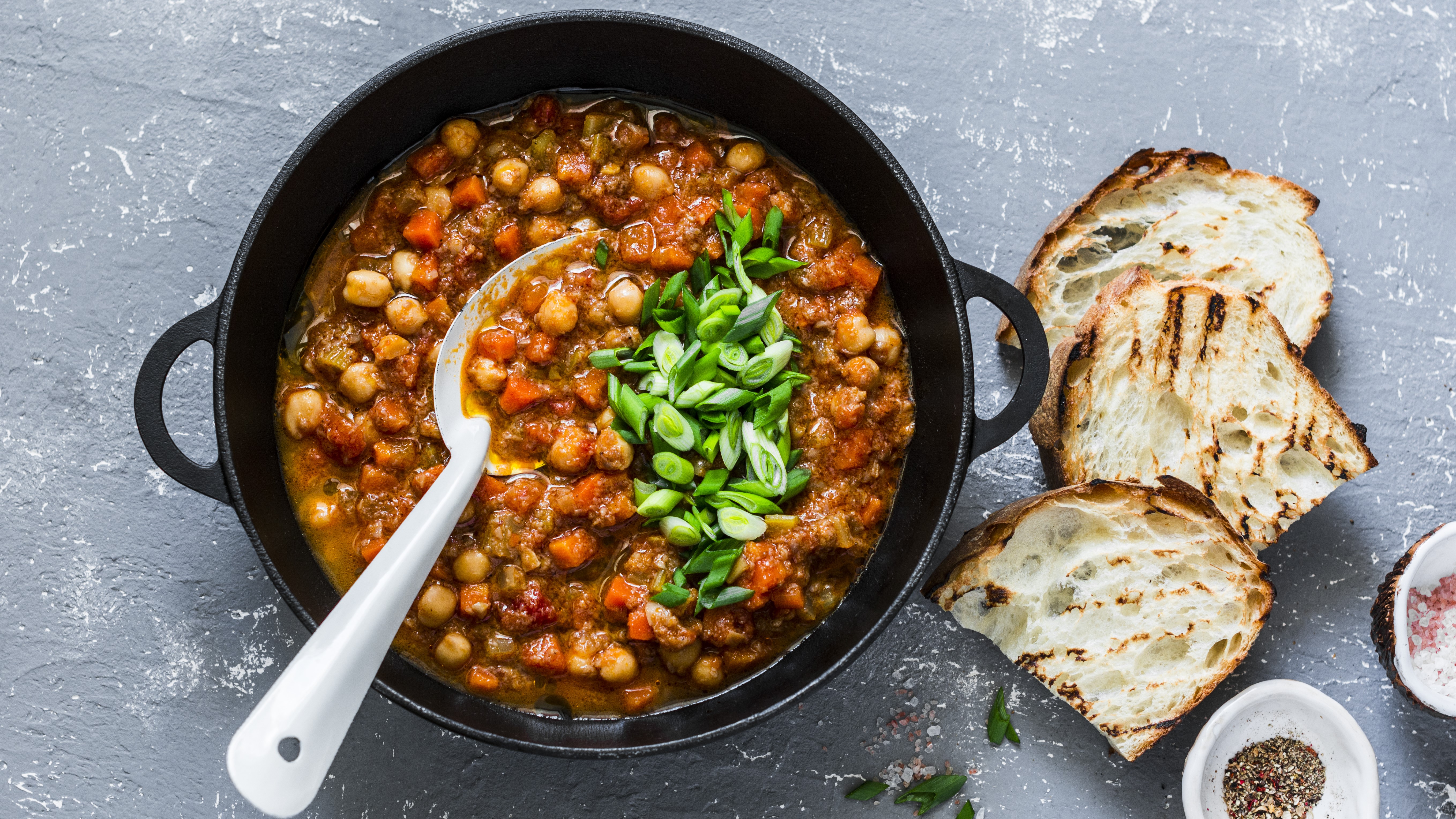
(Image credit: Getty Images)
If your stomach is rumbling come 1pm, it can be tempting to grab the first thing you see in the fridge. But opting for a nutritionally balanced meal can make a big difference when it comes to losing weight. Choose a source of protein—think beans, eggs, fish or chicken—and brightly coloured vegetables that can reduce inflammation and turn off fat-storage genes. Try…
- Minestrone soup
- Vegetable omelet
- Roast chicken salad
- Tuna salad and wholegrain wrap
- Brown rice goodness bowl with avocado, roasted courgettes and aubergine, low fat humous and roasted chickpeas.
- Jacket sweet potato with tuna and sweetcorn
- Cauliflower and chickpea soup
What to eat for dinner
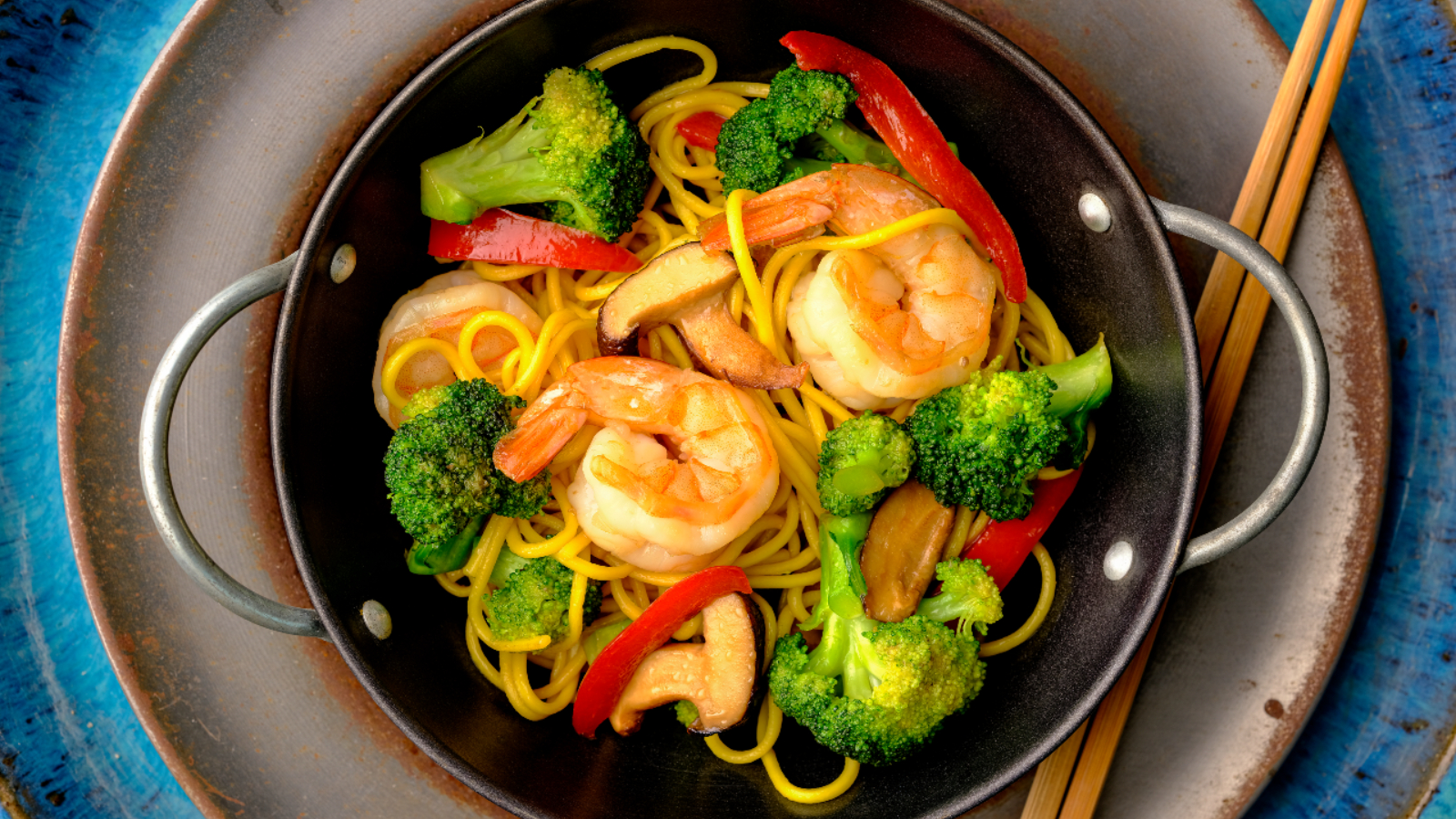
(Image credit: Getty Images / enviromantic)
Dinner is an important meal, so it's crucial you don't skip it or just opt for a bowl of sugary cereal. Eating a healthy dinner is linked to restful slumber (it allows the brain to produce neurotransmitters to calm the mind and induce sleep), it encourages you to make good choices at breakfast and lunch the next day, and it lowers inflammation and maintains stable blood sugars. Try…
- Prawn stir fry
- Grilled salmon with broccoli, asparagus and sweet potato
- Quinoa salad with roasted vegetables and a tahini dressing
- Creamy green pea and broccoli soup with sourdough croutons
- Seabass or tofu tray bake with parsnips, green beans and onions
- Turkey burgers served with butternut squash mash, broccoli and cauliflower
- Black bean and mince meat balls in tomato sauce served with quinoa
What to avoid on the 7-day diet
Hope reveals her definite no-nos when it comes to losing weight.
- Avoid cutting out foods—cutting out foods can make you desire them more and make you overeat. Instead, enjoy a small number of your favorite foods each week.
- Avoid listening to everyone's opinion—there are many strategies for weight loss and different things work for different people. Once you've made up your mind about how you want to lose weight, ignore everyone else's suggestions, as you may become confused and try to do too much at once.
- Avoid over-exercising—like everything, too much isn't a good thing. Over-exercising can significantly increase appetite, which can make it harder to lose weight. Plus, you could form a poor relationship with exercise, impacting your mental wellbeing, too.
- Avoid skipping meals—skipping meals can contribute to blood sugar crashes. When blood sugar levels fall, you're much more likely to overeat later in the day and crave sweeter foods at night, too.
w&h thanks nutritionist Jenna Hope for her time and expertise.
Source: https://www.womanandhome.com/health-and-wellbeing/how-to-lose-weight-in-a-week-98849/